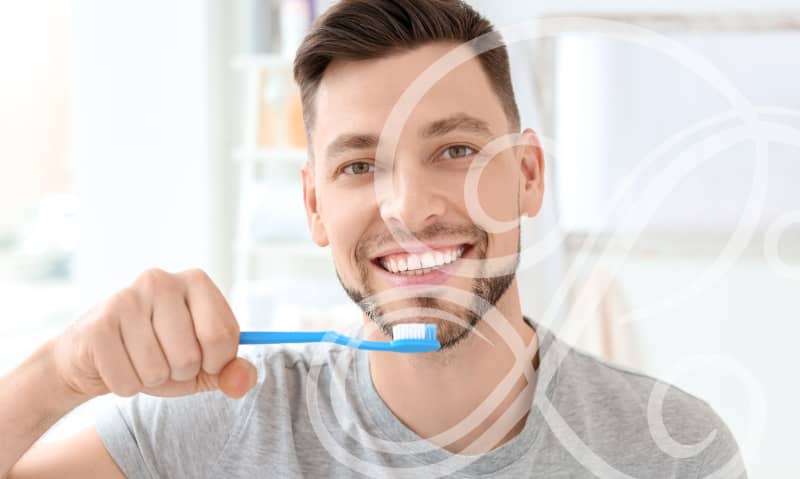2 Most Important and Practical Ways You Can Do Preventive Dentistry at Home

Dentistry includes a wide range of different procedures meant to maintain, treat, and restore your oral health. A vital element of dentistry is preventive dentistry. Preventive dentistry involves preventing issues that affect your teeth and gums and eliminating the need for more invasive treatment.
Eliminate the need for more invasive treatment with at-home preventive care.
To fight tooth decay, gum disease, and other issues before they start, try these two simple tips.
1. Clean in between your teeth.
Proper brushing is a cornerstone of good oral health. There are always bacteria present in your mouth, and they are responsible for tooth decay and gum disease. Managing those bacteria and ensuring that they don’t grow out of control is a core component of preventive dentistry.
Brushing your teeth serves to remove bits of food that provide energy for bacteria. Eliminating tiny particles and sticky residue prevents bacteria from multiplying rapidly. However, it’s not just the surface of your teeth you need to worry about—the spaces between them are important as well.
These nooks and crannies are more likely to allow bits of food to sneak by. They also provide protection for bacteria, allowing them to form plaque and tartar deposits that accelerate tooth decay. An effective brushing routine focuses on dealing with those gaps as well.
How to Clean in Between Your Teeth
Flossing is the method that most people use to deal with the spaces between their teeth. Using the right flossing method removes bits of food and prevents the buildup of plaque.
To floss properly, you can follow these five steps:
- Take about 18 inches of floss
- Hold each end tightly between the thumbs and forefingers
- Curve the floss around the side of a tooth
- Rub gently up and down, pressing against the tooth
- Repeat for the rest of your teeth, including behind the back teeth
There are other options available besides flossing. Some people use a Waterpik, which applies pressurized water to clean spaces between their teeth. For anyone with large gaps between teeth, an interdental brush may be a good option. In any case, you need something to keep the spaces between your teeth clean.
2. Staying Hydrated Throughout the Day
Many people don’t realize that improving their oral hygiene could be as easy as drinking more water throughout the day. Keeping a water bottle on hand filled with clean, pure water can benefit your health in many ways, including protecting you from tooth decay and gum disease.
When you drink water, bits of food and bacteria are washed away. While this isn’t enough to make swishing water a substitute for brushing your teeth, it does provide extra protection throughout the day.
Drinking water is especially effective after eating. Water during and after meals and snacks washes away food more quickly, preventing bits from being left behind. This reduces the levels of bacteria in your mouth by depriving them of their food source.
Keep in mind that this is only true for water. Drinking juice provides sugar for bacteria, and acidic beverages such as soda, tea, and coffee also contribute to tooth decay. Even sparkling water is a poor choice as it may contain sugar and is acidic. You can have these drinks in moderation, but sipping from them all day will only harm your teeth.
This is an easy habit to pick up compared to many others. Find a water bottle that you like and try to bring it with you everywhere you go. You can also find insulated water bottles or thermoses that let you enjoy ice-cold water all day long.
Build Strong Oral Health Habits
Maintaining your oral health is largely a matter of habit. You have to do these things every day to achieve persistent protection. Habit tracker apps are a great option when starting out. You can also consider linking them to another part of your routine. Try brushing before flossing, and make filling up a water bottle part of your meal prep.
Committing to oral health with your family or friends can also help. Having another person committed to the same goals can help improve accountability and make you more likely to follow through.
Keep up with preventive dentistry appointments.
The steps you take at home are essential to maintaining oral health. However, coming in for a routine exam and teeth cleaning every six months is just as important. These dentist appointments provide lasting protection by removing plaque and tartar, along with ensuring that any potential issues are caught as early as possible.
You can count on Parmer Lane Family Dentistry for all of your preventive dentistry needs. We provide a warm and welcoming environment and take the time to understand your unique needs. Options such as fluoride treatment and dental sealants can provide even greater prevention. Schedule an appointment with your Austin family dentist today.